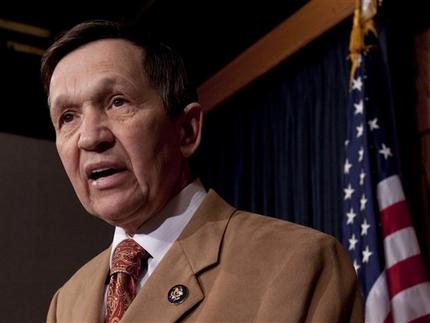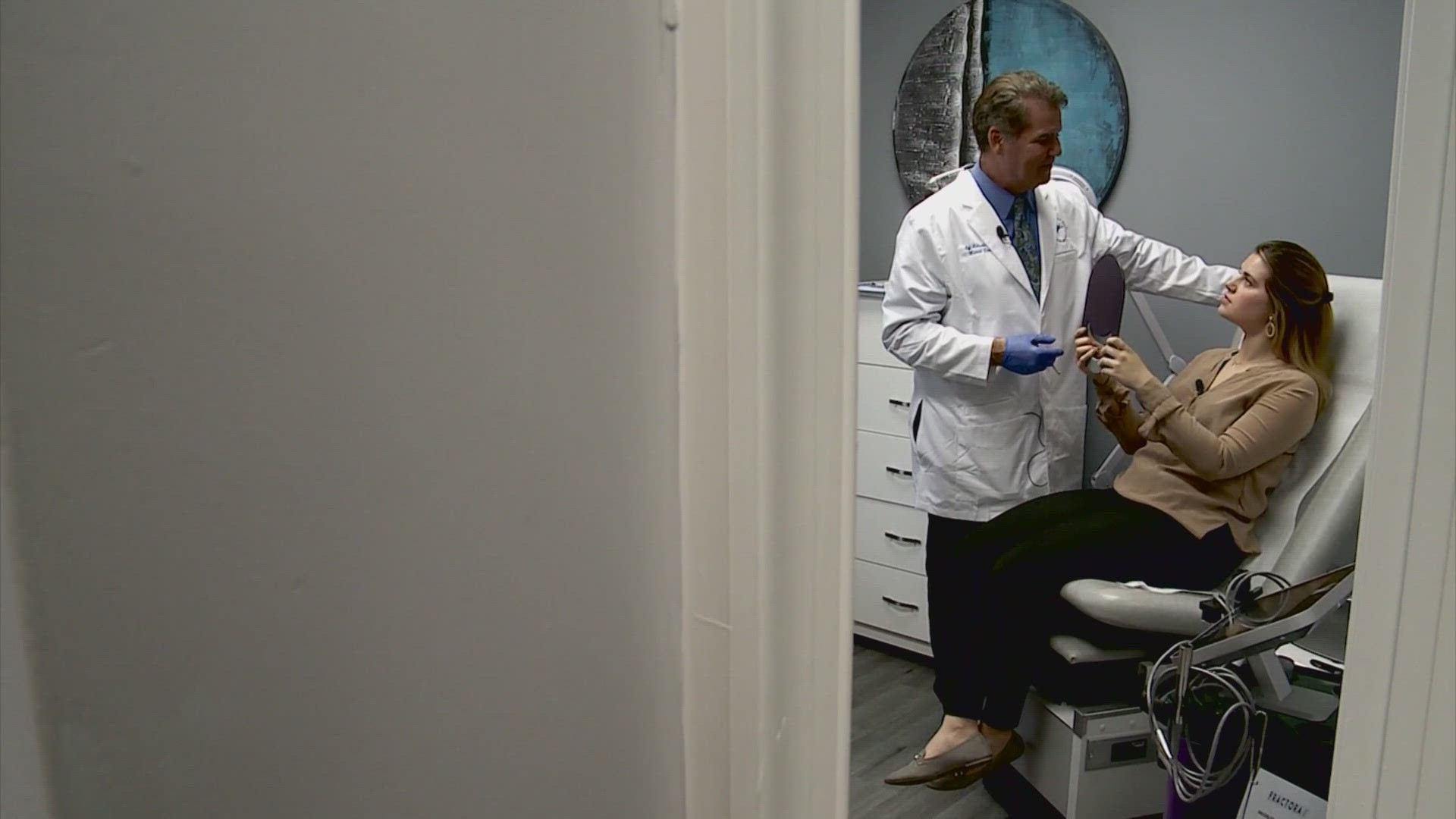WASHINGTON -- President Barack Obama's sweeping health care legislation won precious support from a longtime liberal holdout in the House on Wednesday and from Catholic nuns representing dozens of religious orders, gaining fresh traction in the run-up to a climactic weekend vote.
It's a good sign, said Obama, two weeks after taking personal command of a campaign to enact legislation in what has become a virtual vote of confidence in his still-young presidency.
After days of secretive meetings, Democratic officials said they hoped to release the wording of the final legislation within hours, pending final cost and deficit-reduction estimates from the Congressional Budget Office.
The long-anticipated measure is actually the second of two bills that Obama hopes lawmakers will send him in coming days, more than a year after he urged Congress to remake the nation's health care system. The first cleared the Senate late last year but went no further because House Democrats demanded significant changes - the very revisions now being packaged into the second bill.
Together, the measures are designed to extend coverage to more than 30 million who now lack it and ban the insurance industry from denying coverage on the basis of pre-existing medical conditions. Obama also has asked lawmakers to slow the growth of medical spending generally, a far more difficult goal to achieve.
Rep. Dennis Kucinich's announcement in the Capitol made him the first Democrat to declare he would vote in favor of the legislation after voting against an earlier version, and he stressed he was still dissatisfied with key parts.
I know I have to make a decision, not on the bill as I would like to see it but as it is, said the Ohio lawmaker, who twice ran for president advocating national health care. If my vote is to be counted, let it now count for passage of the bill, hopefully in the direction of comprehensive health care reform.
Referring to the political struggle under way, Kucinich said, You do have to be very careful that the potential of President Obama's presidency not be destroyed by this debate. Even though I have many differences with him on policy, there's something much bigger at stake here for America.
Obama lobbied Kucinich heavily for his vote, including aboard Air Force One earlier in the week on a trip to northeastern Ohio for a presidential speech.
House Speaker Nancy Pelosi, D-Calif., said Kucinich's switch was important not only for itself, but also on the outside, with liberal groups still unhappy the bill doesn't create a government-run insurance option.
Republicans are opposed to the legislation, arguing it still amounts to a government takeover of health care, largely paid for through higher taxes and deep cuts in Medicare that will harm seniors. In recent days, they have also turned their criticism on Pelosi, who says the House may approve the Senate-passed bill without casting a separate vote on it. Instead, under a rule that would itself be subject to a vote, it would be considered passed automatically if the second fix-it bill passed.
This approach has been used numerous times in recent years by both political parties, but Republicans added it to their list of grievances as they sought to send Obama's top domestic priority down to defeat.
The only way to stop this madness is for a few courageous Democrats to step forward and stop it, said Sen. Mitch McConnell of Kentucky, the Senate GOP leader.
Historians will remember this as a new low in this debate, the week that America was introduced to the scheme-and-deem approach to legislating. They'll remember this as the week that Congress tried to pull the wool over the eyes of the public in order to get around their will.
Without disclosing details, Democrats say the fix-it bill would add funds to federal subsidies designed to make health care more affordable for the working poor and middle class, to benefit states that already meet standards the bill sets for health care for the poor and to gradually close a gap in Medicare prescription drug coverage known as the doughnut hole.
The revisions are also expected to repeal a Nebraska-only increase in federal Medicaid funds that cleared the Senate, a provision that became politically toxic as news of it spread last year.
Shortly after Kucinich's announcement, a letter was released from leaders of 60 women's religious orders urging lawmakers to vote for the legislation.
Despite false claims to the contrary, the Senate bill will not provide taxpayer funding for elective abortions. It will uphold longstanding conscience protections and it will make historic new investments - $250 million - in support of pregnant women, wrote the nuns, in a letter released by Network, A National Catholic Social Justice Lobby. This is the REAL pro-life stance, and we as Catholics are all for it.
The endorsement reflected a division within the church. The U.S. Conference of Catholic Bishops opposes the Senate-passed legislation, contending it would, in fact, permit the use of federal funds for elective abortions.
The abortion issue has long split Democrats, 40 of whom voted for an earlier House bill only after it was changed at the last minute to stiffen restrictions on the availability of abortions under a new insurance marketplace that would be established under the bill.
Rep. Bart Stupak of Michigan, a leader of the anti-abortion Democrats, has said at least a dozen of the 40 intend to oppose the bill - although others contend his group has dwindled further.
So far, two of the 40, Reps. Dale Kildee of Michigan and James Oberstar of Minnesota, have announced they intend to support the legislation in the next vote.
The original House bill banned health plans receiving government subsidies from covering abortion, except in cases of rape, incest or to save the life of the mother. Women who wanted insurance coverage for abortion would have to buy a separate policy.
Unlike the House bill, the Senate-passed measure would allow insurance plans to cover abortions provided consumers paid separately from the rest of their coverage. A woman who wants coverage for abortion would have to write two checks to her health insurance plan.
Because of complex parliamentary rules in the Senate, Democrats have concluded they cannot use the fix-it bill to make changes in the abortion provision, leaving anti-abortion lawmakers with a take-it-or-leave-it choice.


